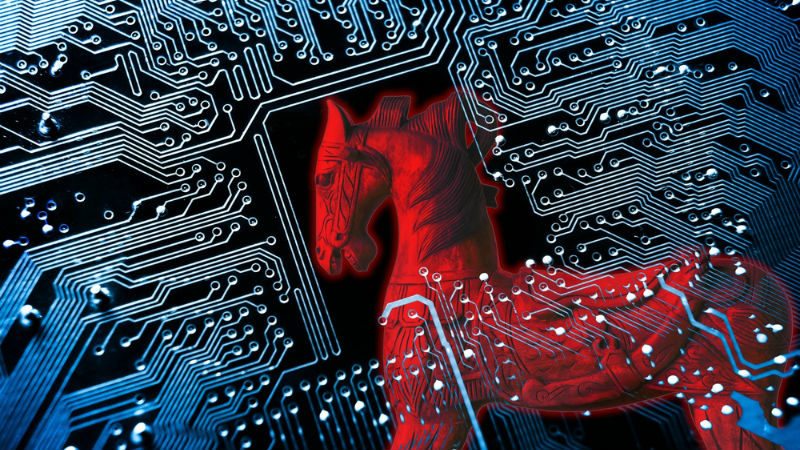
25 Jul Four Major Signs That Your Computer Is Infected With A Virus
Today, we live in the Golden Age of computer hacking. Malicious online attacks have become commonplace, and even corporations with multi-million dollar security budgets are falling victim to serious hacking plots. Several studies and surveys indicate just how popular malware and various viruses have become.
One Microsoft survey found that two-thirds of respondents had fallen victim to some type of tech support scam. This creates a mistrust between consumers and brands, which can create a larger gap for scammers to fall into. Another study conducted by Panda Security discovered that roughly 230,000 new malware samples are being launched per day.
At the same speed that security software is being developed to combat malware, new malware is being produced to circumvent software. The same study revealed that 2015 alone carried 27% of all malware ever recorded. Clearly, security is even more necessary than ever before.
Whether you purchased refurbished laptops in the UK or you bought a brand new laptop from a big box retailer, there’s no way around it: you need to use protective and preventive measures to avoid a computer virus. You should have an antivirus program that runs checks regularly. Some of the best antivirus programs include McAfee, MalwareBytes, Norton, and Avast. Furthermore, understanding computer virus signs can help you quickly fix a problem, rather than allowing the situation to get worse.
Your Computer Is Much Slower
If your computer takes longer to start than normal, this could be a warning sign that something’s not quite right. One of the primary actions of malware is to begin slowing down your operating system, especially when you’re accessing your local documents or using the Internet.
However, before you jump to conclusions, keep in mind that there are other reasons your computer might be slower than usual. The most common causes are that you don’t have enough RAM memory or there’s no storage space on your hard disk. Eliminate other potential causes before you start looking into whether you have a virus.
The Blue Screen of Death
 Whenever a blue screen appears, proceed with caution. This is often referred to as the Blue Screen of Death (BSOD). The BSOD is an error system alert on Windows OS that signifies a system crash. Sometimes, this could very well be a technical issue, and this is Windows’ way of saying it can no longer operate safely.
Whenever a blue screen appears, proceed with caution. This is often referred to as the Blue Screen of Death (BSOD). The BSOD is an error system alert on Windows OS that signifies a system crash. Sometimes, this could very well be a technical issue, and this is Windows’ way of saying it can no longer operate safely.
Sometimes, the BSOD is just a rouse to further infect your laptop, and that’s when things get complicated. In 2016, Microsoft issued a severe threat warning regarding a virus that deployed fake blue screens, alongside a bogus Microsoft support number. When users called that number, they were either instructed to download further malicious software or to pay to have the virus removed.
Use a specialized cleaning session via a free program like CCleaner to fix the issue yourself. If that doesn’t work, take your laptop to a specialist or allow your virus protection to rectify the issue.
Low Disk Error
If you receive a “Low Disk Space” error and you’re certain you haven’t downloaded an extraneous amount of programs, applications, or documents, this is a red flag. Many types of viruses fill up your disk space to the brim, putting you at capacity.
Users have complained that some viruses eat up digital space at an alarming rate, rendering your laptop or computer completely useless. And low disk space can cause a slew of other issues: you might not be able to print, use the Internet properly, or load your files. Run your antivirus checker to double check.
Unwanted Programs Are Appearing
If you notice icons appearing on your desktop of menus that you didn’t install, there’s a high chance that your computer has become infect. There are called Potentially Unwanted Programs (PUPs). PUPs can come in the form of riskware, adware, and pornware.
Aside from suspicious icons, the most common sign that you have PUPs on your computer are display ads that continue to pop up. Typically, these ads contain various coupons or encourage you to visit a website.
However, PUPs are dangerous because, unlike malware, which is download onto your computer maliciously and without your consent, are disguised within programs you actually download. For example, it might be bundled with a free program you install or have its functionality hidden in the End User License Agreement. Because these programs are “technically” installed with your permission, they aren’t identified as malware when you run your security software.
To get rid of unwanted programs, you should use AdWCleaner to remove PUPS, followed by a scan from Malwarebytes or security system of your choice. Then, use a program like HitMan Pro to double check for any ultra-hidden malicious programs. Finally, reset your browser settings.

